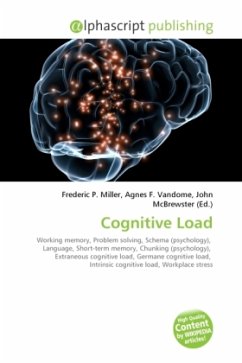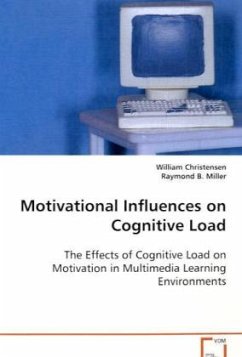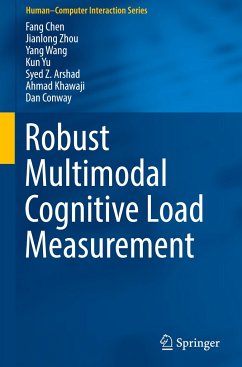
Cognitive Load
Versandkostenfrei!
Versandfertig in 6-10 Tagen
19,99 €
inkl. MwSt.

PAYBACK Punkte
10 °P sammeln!
Cognitive load is a term that refers to the load on working memory during instruction. Instruction may be aimed at teaching learners problem solving skills, thinking and reasoning skills (including perception, memory, language, etc.). Many would agree that people learn better when they can build on what they already understand (known as a schema), but the more a person has to learn in a shorter amount of time, the more difficult it is to process that information in working memory. Consider the difference between having to study a subject in one's native language versus trying to study a subjec...
Cognitive load is a term that refers to the load on working memory during instruction. Instruction may be aimed at teaching learners problem solving skills, thinking and reasoning skills (including perception, memory, language, etc.). Many would agree that people learn better when they can build on what they already understand (known as a schema), but the more a person has to learn in a shorter amount of time, the more difficult it is to process that information in working memory. Consider the difference between having to study a subject in one's native language versus trying to study a subject in a foreign language. The cognitive load is much higher in the second instance because the brain must work to translate the language while simultaneously trying to understand the new information. Another aspect of cognitive load theory involves understanding how many discrete units of information can be retained in short term memory before information loss occurs. An example of this principle that seems to be commonly cited is the use of 7-digit phone numbers, based on the theory that most people can only retain seven "chunks" of information in their short term memory.












